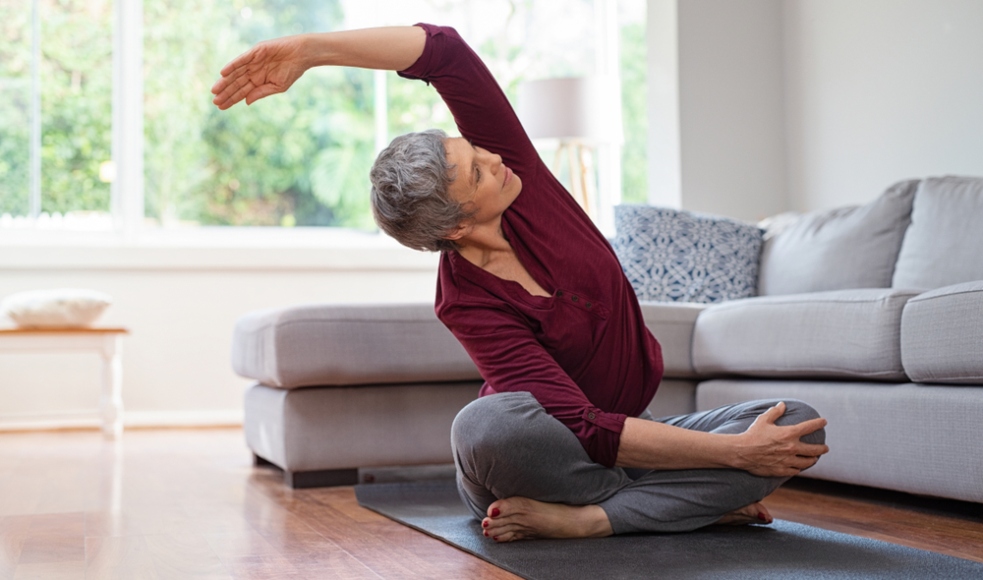Move it or lose it: Sitting around while avoiding COVID-19 creates other health risks, warns exercise researcher

BY Michelle Donovan
April 23, 2020
Prolonged pandemic-related isolation, physical distancing and workplace closures are leading a McMaster University researcher to raise concern over the health impacts of inactivity.
“As we protect ourselves against the risks of COVID-19, we are spending more time sitting and less time walking, or being physically active,” says Stuart Phillips, a professor in the Department of Kinesiology and director of the Physical Activity Centre of Excellence (PACE) at McMaster.
“Extended periods of inactivity have a really detrimental effect on our health. Our physical health has never been more important than now,” he says.
Phillips recently delivered information to Canadian Olympic athletes and coaches on how to mitigate declines in performance and avoid injury when athletes return to peak training after the pandemic. He also led a team of researchers who followed overweight older adults at risk of developing Type 2 diabetes to see how inactivity for as little as two weeks adversely affected their health.
Participants in that 2018 study, sponsored by Diabetes Canada, were asked to limit their steps to 1000 per day to mimic activity levels of a patient in hospital, for example, or someone housebound due to an illness like flu.
Researchers reported that a period of just two weeks of inactivity caused participants to lose some of their ability to control sugar, hastening the onset of diabetes. Some study participants did not fully recover even when they returned to normal activity. The same group has shown that even minimal activity during the inactivity period helps offset the declines.
“The reduced steps experimental model demonstrates what an older person who got the flu might experience if they were hospitalized for three or four days with respiratory issues and then convalesced at home for two weeks,” explains Phillips. “The vast majority of people are at home during this pandemic. For older people, a decline in health may be compounded by both physical deconditioning and social isolation.”
While he stresses the importance of physical distancing and all recommended measures during the pandemic, Phillips points out people should be mindful not to sit for too long and try to get even a small amount of activity if possible.
“Prolonged periods of sitting should be broken up with ‘activity snacks’ like a little walk, or going up and down a flight of stairs,” he says. “A short daily walk has amazing properties from not just a physical but a psychological perspective. We don’t have to run a marathon.”
Fellow McMaster kinesiology professor Martin Gibala, who is a leading researcher on the benefits of high intensity workouts, has proven there are genuine and substantial benefits to shorter, higher intensity bouts of activity such as climbing stairs.
“Perhaps this is a real global awakening as to what it means to be physically active,” says Phillips. “If this pandemic is teaching us anything, it is that being in better health is protective.”
To watch a webinar on the (surprising) benefits of being physically active, go to the McMaster Alumni Website.


